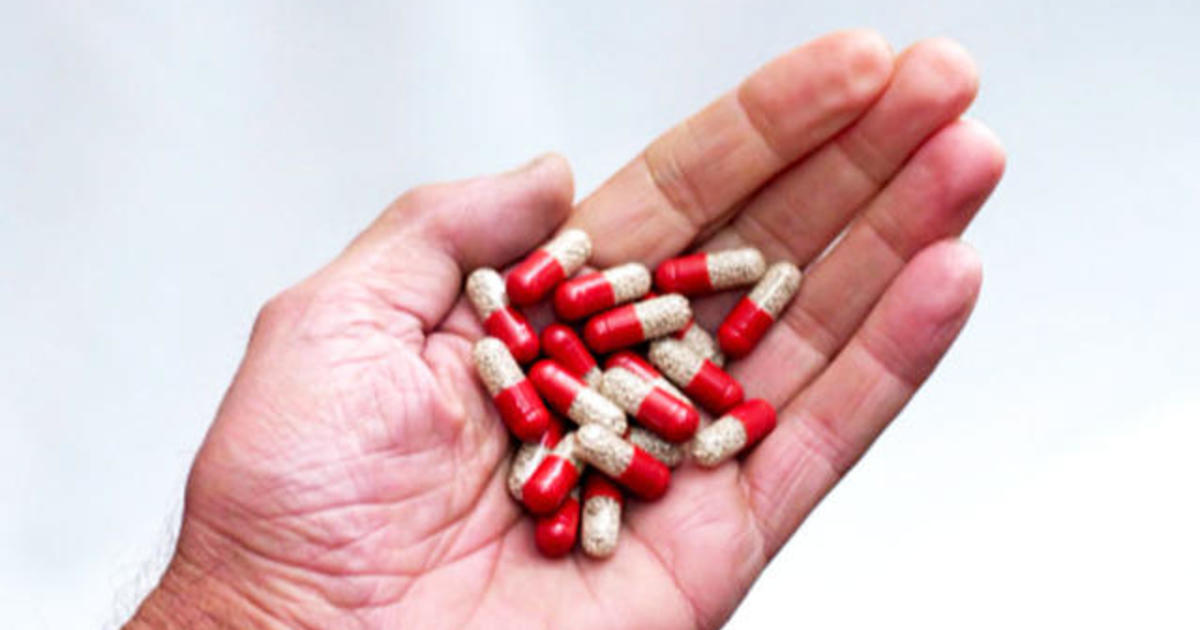While dietary supplements may be advertised to promote health, a forum at the American Association for Cancer Research (AACR) Annual Meeting 2015 by University of Colorado Cancer Center investigator Tim Byers, MD, MPH, describes research showing that over-the-counter supplements may actually increase cancer risk if taken in excess of the recommended dietary amount.
“We are not sure why this is happening at the molecular level but evidence shows that people who take more dietary supplements than needed tend to have a higher risk of developing cancer,” explains Byers, associate director for cancer prevention and control at the CU Cancer Center.
The line of research started 20 years ago with the observation that people who ate more fruits and vegetables tended to have less cancer. Researchers including Byers wanted to see if taking extra vitamins and minerals would reduce cancer risk even further.
“When we first tested dietary supplements in animal models we found that the results were promising,” says Byers. “Eventually we were able to move on to the human populations. We studied thousands of patients for ten years who were taking dietary supplements and placebos.”
The results were not what they expected.
“We found that the supplements were actually not beneficial for their health. In fact, some people actually got more cancer while on the vitamins,” explains Byers.
One trial exploring the effects of beta-carotene supplements showed that taking more than the recommended dosage increased the risk for developing both lung cancer and heart disease by 20 percent. Folic acid, which was thought to help reduce the number of polyps in a colon, actually increased the number in another trial.
“This is not to say that people need to be afraid of taking vitamins and minerals,” says Byers. “If taken at the correct dosage, multivitamins can be good for you. But there is no substitute for good, nutritional food.”
Byers says that people can get the daily recommended doses of vitamins and minerals in their diets by eating healthy meal and that many adults who take vitamin supplements may not need them.
“At the end of the day we have discovered that taking extra vitamins and minerals do more harm than good,” says Byers.
Dietary Supplements and Cancer Prevention: Balancing Potential Benefits Against Proven Harms
Nutritional supplementation is now a multibillion-dollar industry, and about half of all US adults take supplements. Supplement use is fueled in part by the belief that nutritional supplements can ward off chronic disease, including cancer, although several expert committees and organizations have concluded that there is little to no scientific evidence that supplements reduce cancer risk.
To the contrary, there is now evidence that high doses of some supplements increase cancer risk. Despite this evidence, marketing claims by the supplement industry continue to imply anticancer benefits. Insufficient government regulation of the marketing of dietary supplement products may continue to result in unsound advice to consumers. Both the scientific community and government regulators need to provide clear guidance to the public about the use of dietary supplements to lower cancer risk.
According to the 1994 US Dietary Supplement Health and Education Act, a nutritional supplement is defined as a product intended to supplement the diet, containing one or more dietary ingredients (including vitamins, minerals, herbs, amino acids, or other botanicals), and to be taken by mouth as a pill, capsule, tablet, or liquid
Clearly, dietary supplements are useful for the treatment of nutrient deficiencies; however, with the exception of select subgroups such deficiencies are relatively uncommon in the United States and most industrialized countries today. According to the most recent National Health and Nutrition Examination Survey (2003–2006), half of the US adult population uses one or more dietary supplements; most of those are multivitamin and/or multimineral supplements
Observational studies provide little evidence that multivitamins reduce cancer risk, and there have been no randomized studies of multivitamins for cancer prevention. Nonetheless, high supplement usage, fueled by industry claims ranging from wrinkle to cancer prevention, has resulted in a continued rise in nutritional supplement sales, estimated to be approximately US $30 billion annually.
Assessment of the role of dietary supplements in cancer prevention relies heavily on in vitro and animal experiments, which provide evidence of potential biochemical and molecular mechanisms of action for specific nutrients. Evidence from observational studies in human populations may also be invoked in support of a proposed relationship between a nutrient and a cancer outcome.
This evidence can add to the rationale for experimental testing in humans, usually via a randomized controlled trial (RCT), regarded as the “gold standard.” Compared with the large number of observational studies of diet and cancer, the number of RCTs of dietary supplements for cancer prevention conducted to date is relatively small; findings from these RCTs generally do not support the observational epidemiological data that suggest benefit. Because the number of supplements currently available in the market is large, we will limit this commentary to supplements that have been tested in adequately powered clinical trials or in large well-designed observational studies.
Based on this evidence, we summarize the current knowledge about the benefits and harms of nutritional supplements for cancer prevention and comment on current needs for improving public policy and education about the use of these products.
Evidence for Benefit and Harm
Antioxidants
Several early observational studies found that diets high in fruit and vegetables were associated with diminished risk of several cancers, including respiratory and gastrointestinal cancers.
The importance of β-carotene and other carotenoids was suggested by both retrospective and prospective studies showing that low levels of β-carotene in the serum were associated with higher subsequent risk for lung cancer . At one point, research focused on retinoid supplementation, in light of the finding that β-carotene is converted to retinol . It was hypothesized that the lower risk associated with consumption of these foods, and with β-carotene, α-tocopherol, and vitamin C intake, might be attributable to the activity of antioxidants. In vitro and in vivo studies suggested that these compounds encourage growth of normal tissue and block growth of abnormal tissue.
However, human experimental studies have uncovered the following: β-carotene does not prevent non-melanoma skin cancer recurrence; β-carotene and α-tocopherol with vitamin C do not protect against adenoma recurrence; β-carotene and vitamin A do not protect against lung cancer incidence; α-tocopherol and β-carotene do not prevent lung cancer; β-carotene does not prevent lung cancer; vitamins C and E do not protect against total cancer incidence; and α-tocopherol, vitamin C, and β-carotene do not protect against total cancer or cancer mortality.
Based on a review of trial data, a Cochrane report concluded that there was no convincing evidence that β-carotene, vitamin A, vitamin C, or vitamin E supplements, given singly or in combination, prevent gastrointestinal cancers. The importance of oxidative stress for carcinogenesis does not establish that the administration of supplemental antioxidants will protect against the carcinogenesis that oxidative stress may induce.
Supplementation by exogenous antioxidants may well be a two-edged sword; these compounds could, in vivo, serve as pro-oxidants or interfere with any of a number of protective processes such as apoptosis induction. In fact, as noted below, some clinical trials show that some of these antioxidant nutrients may increase cancer risk.
A great deal of optimism was occasioned by results of the Nutritional Prevention of Cancer (NPC) study, which was designed to test the skin cancer preventive effects of selenium, a trace mineral that is important for protection against oxidative stress. The first report from the NPC showed that selenized yeast did not affect skin cancer incidence but was negatively associated with the incidence of some malignancies that were secondary endpoints in that trial, including cancers of the lung, colon, and prostate, as well as total cancer incidence and mortality.
In the Alpha-Tocopherol, Beta-Carotene Cancer Prevention (ATBC) Trial, neither agent showed benefit for lung cancer (the primary endpoint), but men randomly assigned to take α-tocopherol were found to have fewer incident cancers of the prostate compared with those in the group assigned to placebo.
Concluding Remarks
We have argued that dietary supplements should not be directly or indirectly marketed for cancer prevention, absent findings from clinical trials documenting efficacy and safety. Given the current state of the science, do we need to conduct more RCTs of dietary supplements to assess their efficacy for cancer prevention? We do, but these trials must be designed strategically and in light of lessons learned from previous studies.
In the absence of convincing evidence that more will be better, we probably do not need more trials in nutrient-replete populations. The value of conducting trials in populations with poor nutrient status has been shown in results of primary and secondary analyses reviewed above. In any case, we will require studies that evaluate the impact of many years, rather than a few years, of nutritional supplementation.
Source: | This article originally belongs to cbsnews.com
Materials provided by University of Colorado Cancer Center.
Last Updated on April 2, 2021 by 247 News Around The World









